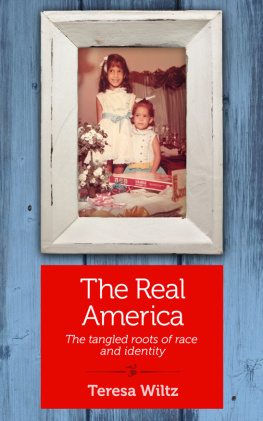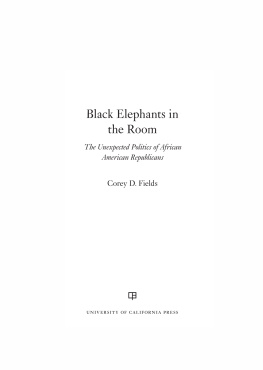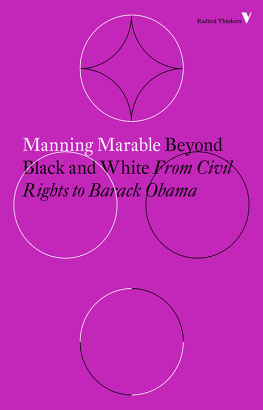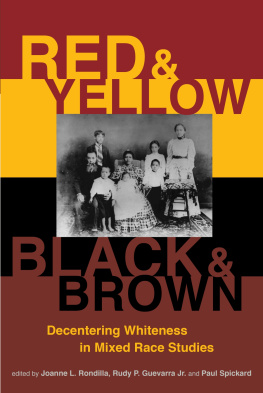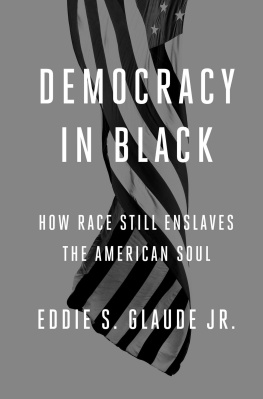Teresa Wiltz - The Real America: The tangled roots of race and identity
Here you can read online Teresa Wiltz - The Real America: The tangled roots of race and identity full text of the book (entire story) in english for free. Download pdf and epub, get meaning, cover and reviews about this ebook. year: 2014, publisher: She Writes Press, genre: Politics. Description of the work, (preface) as well as reviews are available. Best literature library LitArk.com created for fans of good reading and offers a wide selection of genres:
Romance novel
Science fiction
Adventure
Detective
Science
History
Home and family
Prose
Art
Politics
Computer
Non-fiction
Religion
Business
Children
Humor
Choose a favorite category and find really read worthwhile books. Enjoy immersion in the world of imagination, feel the emotions of the characters or learn something new for yourself, make an fascinating discovery.
- Book:The Real America: The tangled roots of race and identity
- Author:
- Publisher:She Writes Press
- Genre:
- Year:2014
- Rating:4 / 5
- Favourites:Add to favourites
- Your mark:
The Real America: The tangled roots of race and identity: summary, description and annotation
We offer to read an annotation, description, summary or preface (depends on what the author of the book "The Real America: The tangled roots of race and identity" wrote himself). If you haven't found the necessary information about the book — write in the comments, we will try to find it.
Growing up, Teresa Wiltz always knew that she was black. Her parents, the mixed-race descendants of both the enslaved and the enslaversand a stray American Indian or twomade it abundantly clear: were black. Be proud. And she was proud. Problem was, everyone else was always questioning her about her racial bona fides. She grew up bumping against the either/or boxes, being mistaken for everything from Puerto Rican to Moroccan to Brazilian to Ethiopian to South Asian and getting terribly confused by it all. Looking like a generic ethnic means getting stopped by cops in Havana, Cuba, who see her hanging with other Americans and are convinced she is a jinetera, a local prostitute, up to no good. It means being hassled by the customs official in Islamabad, Pakistan, who assumes shes Pakistani American, or having a West African cabbie insist, Your mother is white and your father is black! (Um, nope.) She used to hate it when people asked her, What are you? and What are you mixed with? or even, Do you speak English?but now, shes come to appreciate her familys convoluted racial heritage. Because her family story, with its generations of mixing and miscegenating, is very much an American story. A story of the Real America.
Teresa Wiltz is an award-winning journalist who was born in Washington, D.C., and raised in Atlanta and Staten Island, New York. She has lived in Guatemala and Mexico and has reported from Senegal, Guatemala, Ethiopia, Pakistan, Liberia, Afghanistan, and Europe. After graduating from Dartmouth College, she pursued a career in dance and performed with several modern dance companies. On retiring from dance, she received a masters degree from Northwesterns Medill School of Journalism. Over the course of her career, she has worked for the Washington Post, the Chicago Tribune, the Root, and Essence. Her essays are featured in Souls of My Sisters, City: Chicago 2000 and in the literary journal Konch, edited by poet Ishmael Reed. Wiltz lives in Washington, D.C., with her husband and their dog.
This is a short e-book published by Shebookshigh quality fiction, memoir, and journalism for women, by women. For more information, visit shebooks.net.
Teresa Wiltz: author's other books
Who wrote The Real America: The tangled roots of race and identity? Find out the surname, the name of the author of the book and a list of all author's works by series.

